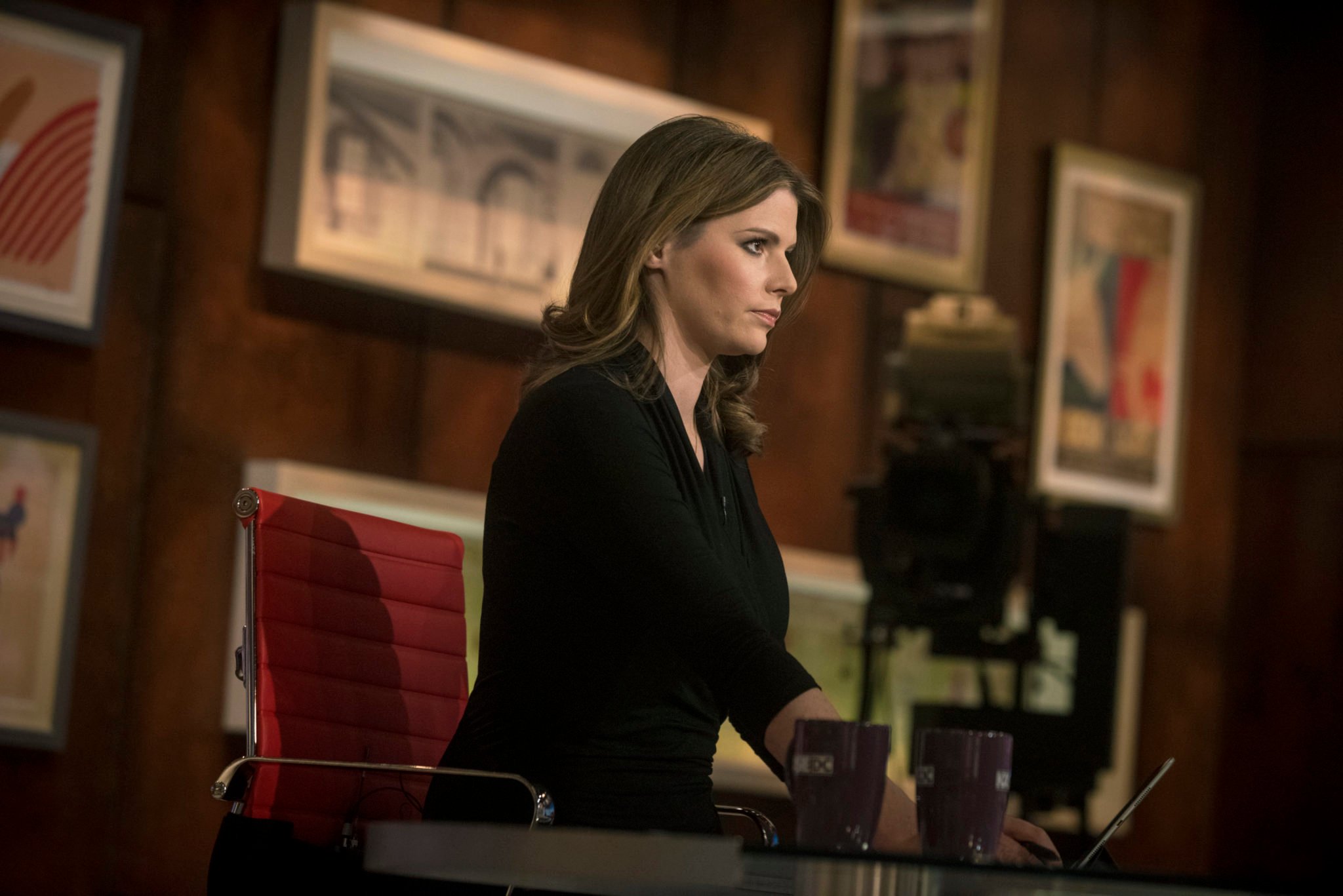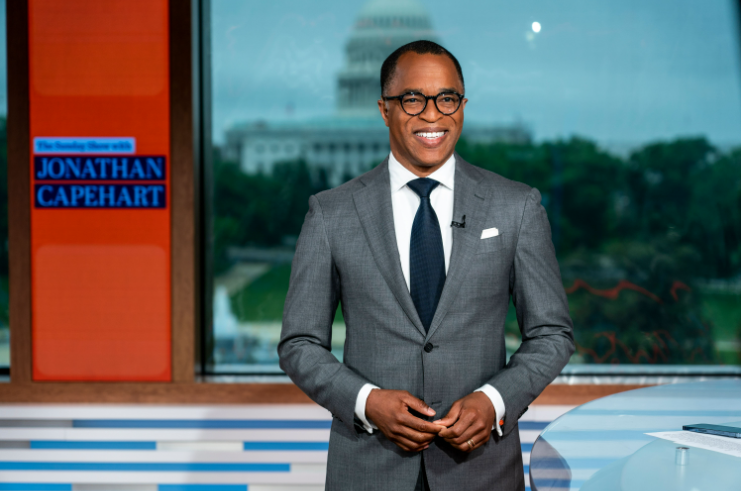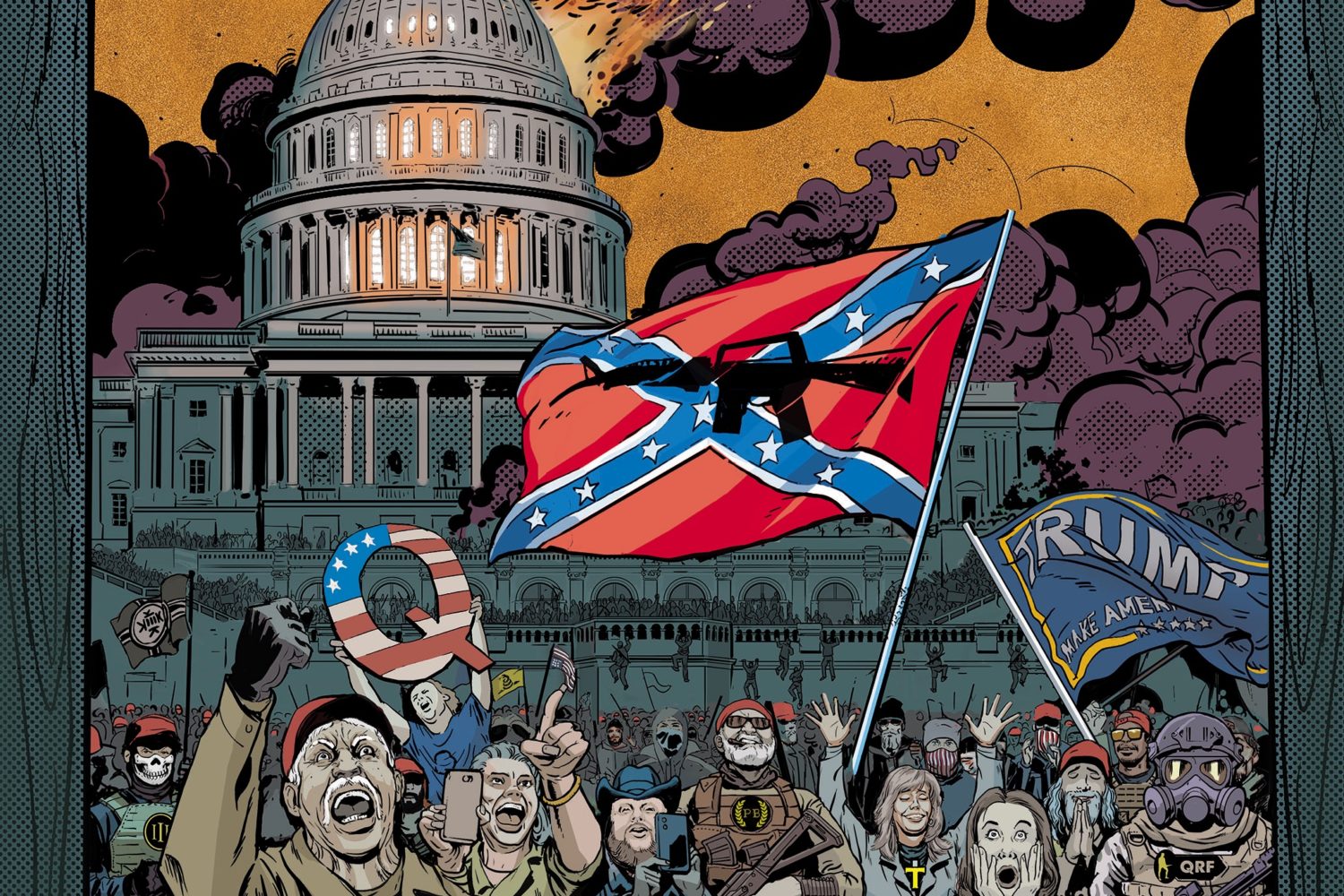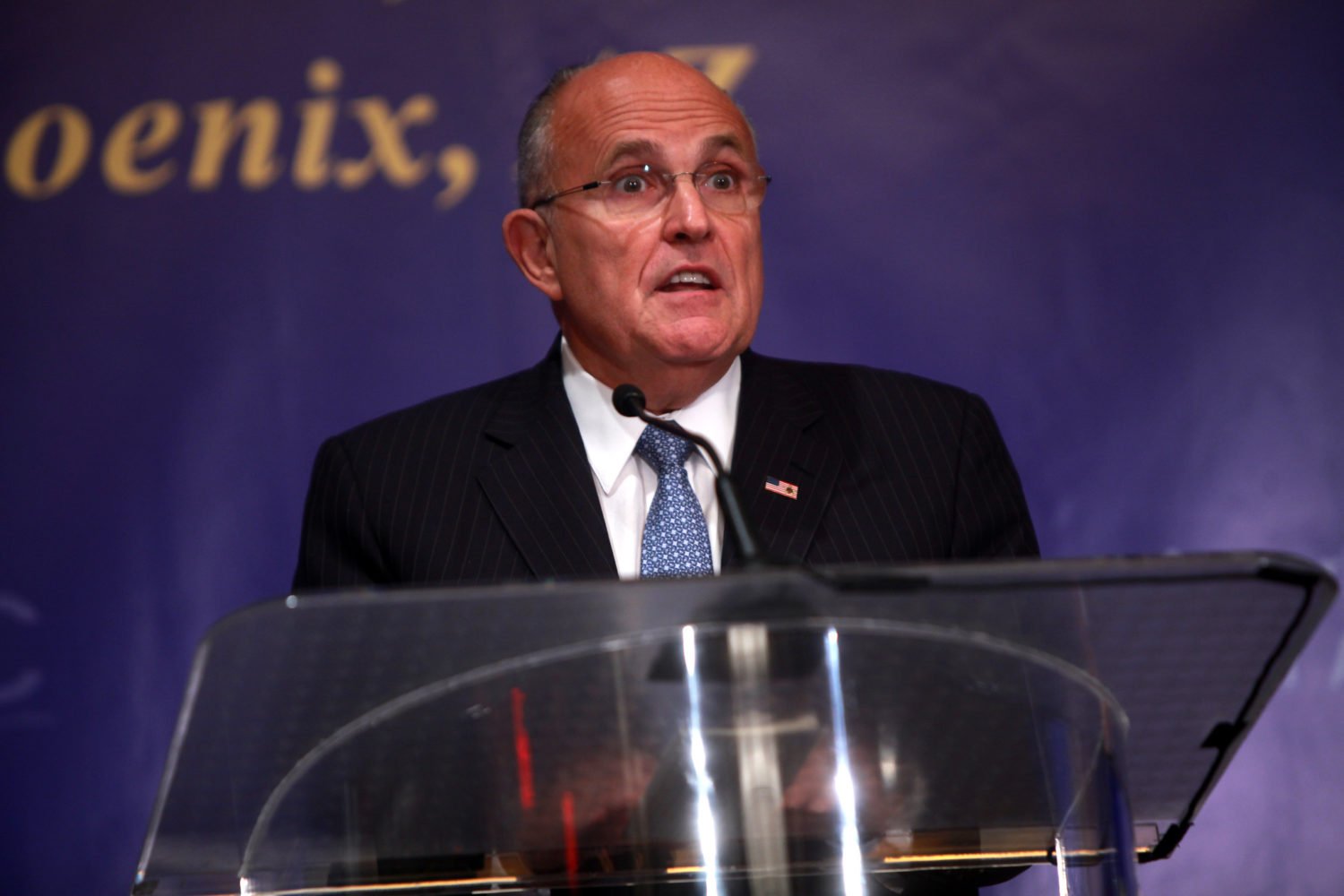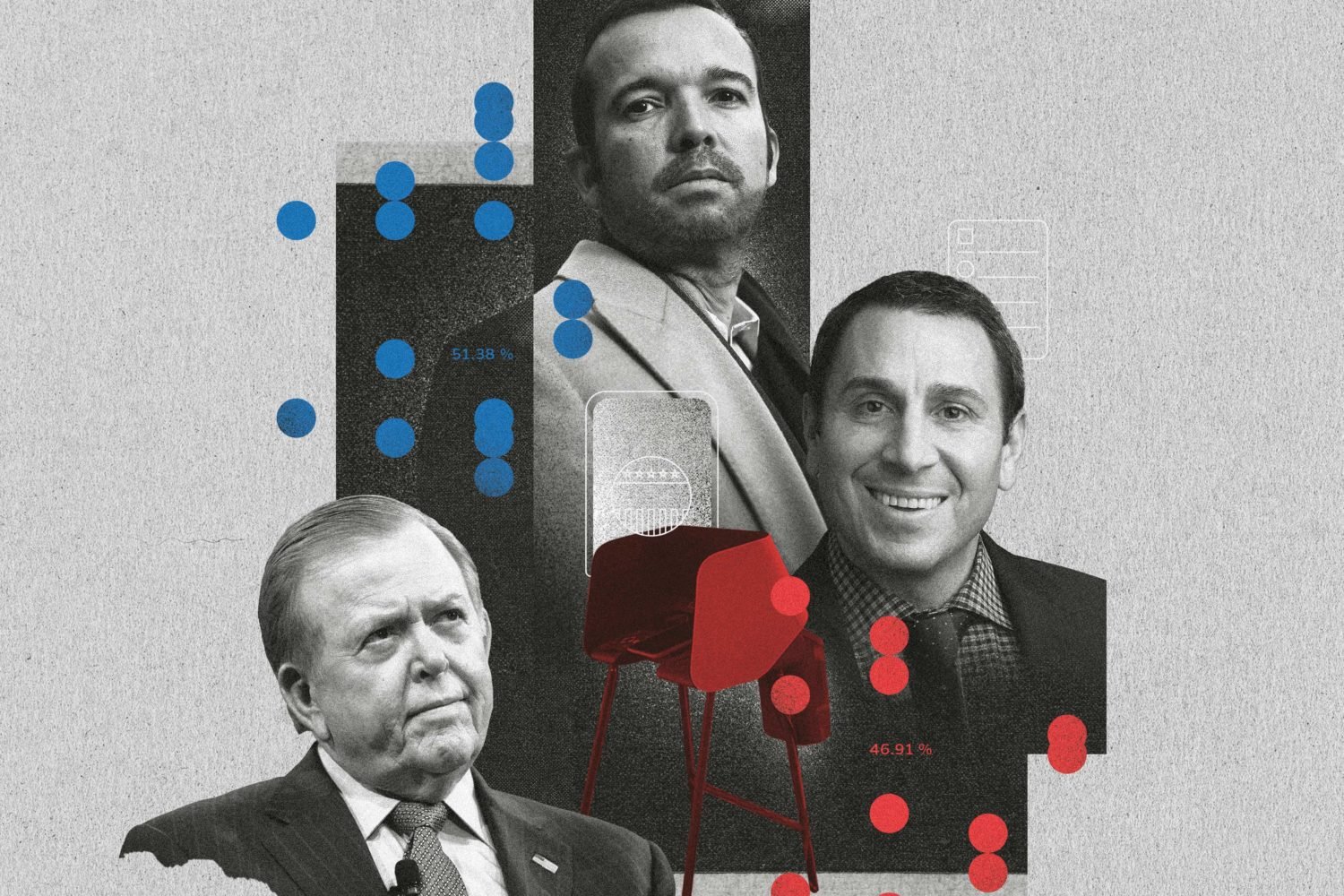For the better part of a decade, Capitol Hill reporter Kasie Hunt has been a staple of political journalism in DC, in the top crop of millennial reporters who have risen to prominence in the Trump era. This week, she begins anchoring her own morning show.
Hunt is hosting Way Too Early on MSNBC, joining the network’s morning programming. The show title is a giveaway to the early time slot—starting at 5 AM, as the lead-in program to Morning Joe. (The show launched its original host, Willie Geist, back in 2009.) Hunt will help set the tone for the news day with topics ranging from politics to human interest, as well as occasional light-hearted fare—just the right brew, you might say, for crazy-early risers.
Hunt spoke with Washingtonian about the show, how she’s balanced work with being a new mother, and the state of political journalism in the final stretch of the presidential campaign.
Tell us about the show!
It is actually way too early! Although I have learned to be a morning person over my years in television. I’m not always the best at motivating myself to get out of bed; I’m sure the alarm will not be welcome every day. But I’m looking forward to being part of the Morning Joe family. And I’m super excited about bringing back the name [Way Too Early], because Geist brought kind of an irreverent sensibility to it. And I’m excited about borrowing some of that. The news is obviously pretty heavy right now, but also people want to wake up with a little bit of fun sometimes, so hopefully we can kind of revive that.
I’m going to be interested to know why our viewers are awake. It’s a wide range—some people work the night shift, others are still up on the west coast, others are getting up at four on the east coast to head to work…and because a lot of lawmakers tune in and watch, it’s a great platform that builds on what I’m doing at the network as a Capitol Hill correspondent.
And my son just turned one last week. So hopefully this will give me more time when he’s awake to hang out with him. As any working mom will tell you, trying to get home for those 15 minutes before bedtime is always heart-wrenching. So I think this will hopefully line up both professionally and personally for me, which I’m excited about.
So you have a one-year-old infant, it’s a pandemic, and you have a TV studio…in your house. Sounds like this might delicately be described as challenging.
Nothing about this pandemic is easy for anyone, and my husband [NBC senior producer Matthew Rivera] and I feel very lucky and relieved that we’re still employed and that our families are healthy. But that said, I think parents collectively are losing their minds in this pandemic. And it’s really challenging for everyone who’s trying to balance it. We didn’t have childcare in the beginning of the pandemic, so that was something—passing the baby back and forth throughout the course of the day, and syncing up our schedule with his naps. Together we were able to figure it out. At the beginning, he wasn’t mobile: If you put him down, he stayed where you put him; you could take conference call and be confident the baby was going to be fine for 30 seconds. Now he can crawl, so keeping up with him is much harder.
But we’ve sort of made it work. And honestly, I miss the travel we’d normally be doing for the campaign. It’s very weird to do an election year this way. But I did get to see way more of my son in his first year, and maybe I wouldn’t have known what I was missing if I was traveling all the time. That’s my pandemic silver lining.
So 5 AM is early, but not literally too early. What can you do with that hour of the day?
I think a lot of people who are decision makers—lawmakers, people who are focused and at the top of their game—need a place to get the news at 5 AM, because that’s when they’re starting their days. The goal is to be a place where they can get it in a quick, straightforward, and illuminating, smart way. That’s been my goal, to make people smarter, and bring what I can to bear in terms of what my understanding is from my sources and being a correspondent on the Hill. Bringing a perspective you won’t be able to get anywhere else.
I think people tend to use morning TV as part of their routines. I grew up watching The Today Show—my mom watched it every day. People get to know the morning-show hosts that they bring into their lives at that hour. So I’m excited about that too.
I want to ask about the state of political journalism as we head into the final stretch of the presidential election. A few commentators have expressed their exasperation with the political press—a reluctance to call out lies, a temperamental fixation with both-sides-ism. How do you think the press is doing so far this cycle?
I think it’s an enormous challenge, and I think it’s part of our duty and responsibility to the country to rise to it. My way of looking at this—I grew up at the Associated Press as my formative job experience, which teaches very terse, declarative, straightforward statements. You keep your opinions and your views to yourself. I think that way of doing this is certainly being scrutinized right now, and people are rightly raising questions about whether it rises to the moment.
For me personally, I don’t feel as though my role is to be part of the story. That’s sort of the opposite of what I view my role to be. I do believe that it’s important to challenge the people you’re covering. I also think it’s important to be respectful of people, and I’ve found there has been a significant change in what that means for a lot of your sources—what it means to respectfully interact—and that is also a challenge to overcome. I’ve found in the Trump era, striking a right balance is an essential challenge. Sometimes I get it right, sometimes I wish I’d done things differently. Probably we all do.
One thing I’m watching for and very conscious of for myself is that election night is going to potentially look different from years past. In 2000, we were living in South Florida, in Broward County—land of the hanging chads—and we stayed up late watching Tim Russert with the white board, as some networks called Florida for Gore, then we watched them take it back, and then went to bed not knowing. I’ve spent a lot of time thinking back to that lately. Because the decisions that were made in the aftermath of that, and the role of the narrative in that eventual outcome, was actually very important. It’s very incumbent on us in media, especially on cable but also broadcast news—we have to get it right. There’s also a tension between being first and being right; it can be hard to resist that, but we’re going to have to be careful. NBC has had a lot of series on the air looking at disinformation and other challenges we’re going to face [as a country]. But from my perspective, if I find myself sitting on set election night, the first thing I’m thinking about is how do we make sure we don’t get ahead of where we actually are—not just for the night itself but for whatever comes afterward.
Do you think we’re headed to a protracted election fiasco? And what’s the media’s role if we find ourselves in a constitutional crisis?
I think we recognize the gravity of the situation facing the country. No matter which side of the political debate you’re on, there are some fundamental questions at stake about how we’re going to move forward. One [aspect] of balance that’s very important is, if every fire that we cover as the press is a five-alarm fire, then nothing is a five-alarm fire, right? It’s important not to spin people up on stuff, so that when there’s something people should be spun up about, they can recognize the difference. And I think it’s incumbent on all of us to be sober and careful when that’s appropriate, and make sure if there are moments where something different is called for, that is [made] obvious to the people that are watching.
The concern that’s often voiced is, if we do get into a protracted election battle, can the press can resist the horse-race mentality of who’s up and who’s down—such as which campaign is winning in the federal courts—when it seems likely that one side, the President’s, will in fact objectively be inflaming the crisis. Is there anything that can be done about that, or is this a problem that just far exceeds the scale of political media?
We’ve talked a lot about the role of the press, and I think that’s very important. I also think the role of our other institutions and people who have a stake in those institutions are also really facing a period of testing. And I think that’s really important—something I want to do on our show every day at 5 AM is scrutinize whether they’re standing up to the moment, whether they’re members of Congress, judges, members of cabinet, or people who work for the press, whether it’s anonymous sources or on-the-record sources. There are institutions across the board that have a lot at stake in the election and I think history is going to be focused on all of them—the press included. That’s part of what I’m trying to do.
Interview has been lightly edited and condensed for clarity.

